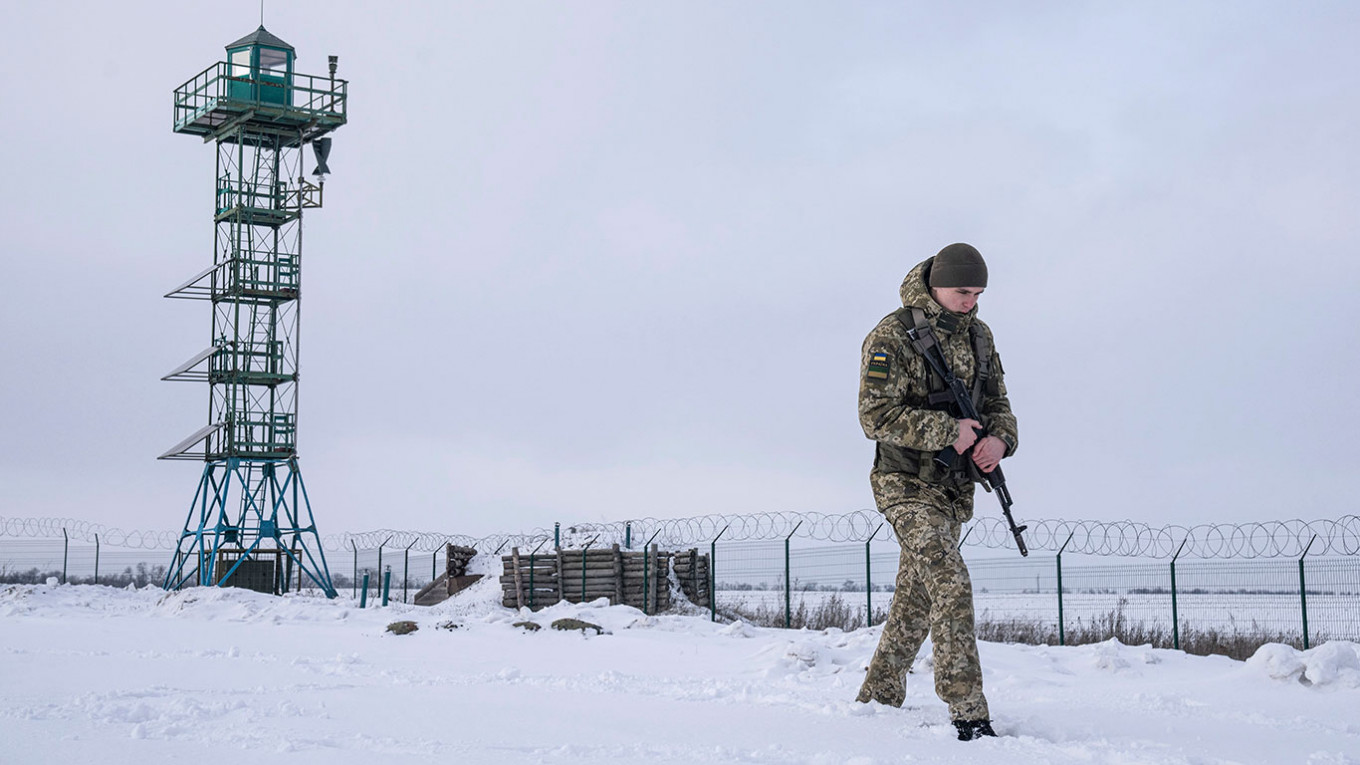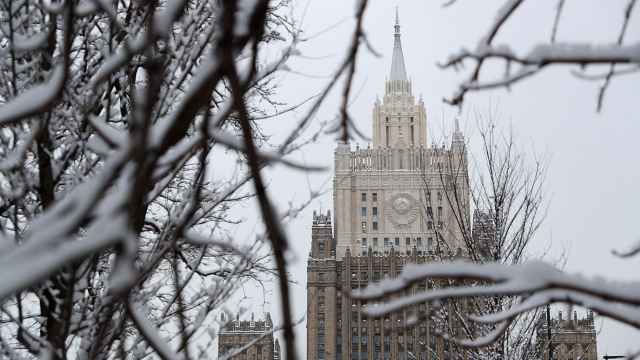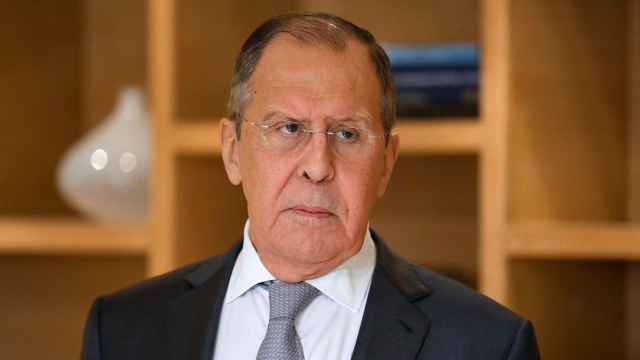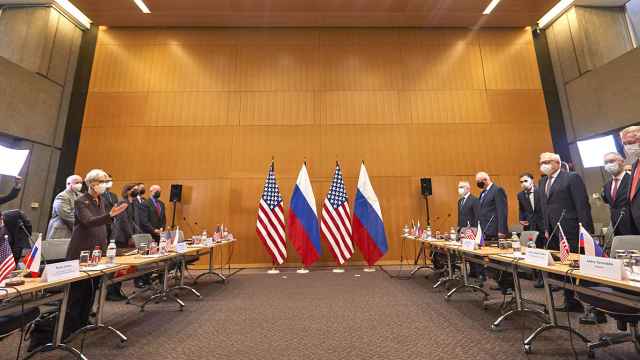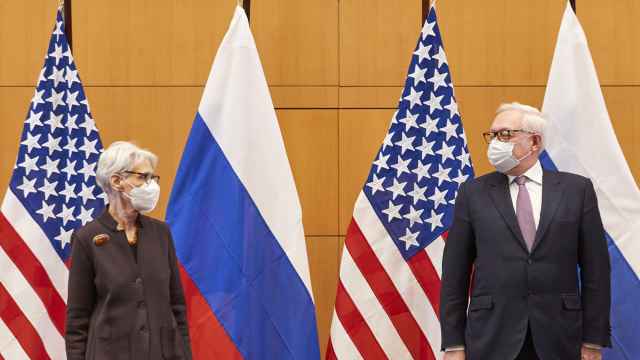High-stakes talks between Russia and the West have so far failed to de-escalate a tense standoff between the sides, with the United States warning of a serious risk of a Russian offensive against Ukraine.
In addition to demanding a ban on Ukraine’s future membership to NATO, Russia wants the Western alliance to pull back its forces to where they were in 1997, before eastern European members joined.
Moscow has amassed some 140,000 troops close to the border with Ukraine and in annexed Crimea, and its announcement of surprise military exercises with neighboring Belarus has fueled tensions further.
NATO and the U.S. have called Russia’s demands “non-starters,” instead offering to open a dialogue with Russia on a host of lesser issues such as missile deployment and military exercises. Moscow said this was unacceptable and awaited written responses from the U.S on each of its demands. The U.S. and NATO delivered their confidential written responses on Jan. 26 and are still awaiting an official reply from Moscow.
As diplomatic efforts continue, Russia has begun large-scale joint military drills with Belarus. The exercises, involving a significant land, air and naval presence on Ukraine’s border, are to last between Feb. 10 and Feb. 20.
Feb. 11: What you need to know today
- Russia and Ukraine failed to reach a breakthrough at marathon talks in Berlin on Thursday. The Normandy format meetings mediated by France and Germany after “almost nine hours of negotiations ended without any visible, tangible results expressed in documents,” rued Kremlin envoy Dmitry Kozak. Kozak’s Ukrainian counterpart Andriy Yermak expressed hope that “everyone is determined to achieve a result.”
- The French, German, Ukrainian and Russian representatives present at the Normandy format talks agreed to meet again in March.
- Russia's Defense Minister Sergei Shoigu said Moscow's ties with London were at a low point as he met with U.K. Defense Secretary Ben Wallace for rare talks amid soaring tensions over Ukraine. He said he hoped for talks "without any escalation and raising the temperature even higher" in relations between Russia and the NATO bloc and accused the West of "gorging" Ukraine with weapons.
- NATO Secretary General Jens Stoltenberg warned Friday of the "real risk for a new armed conflict in Europe" as both NATO and Russia continue to increase their military presence around Ukraine.
- Ukraine on Friday played down U.S. President Joe Biden’s call on American citizens to leave immediately. Biden on Thursday urged citizens to “leave now,” but in an attempt to calm fears, Ukrainian Foreign Minister Dmytro Kuleba said “this statement is not evidence of some radical change of the situation.”
- Satellite images on Friday revealed the continuation of a Russian military buildup near Ukraine as Russia’s joint military drills with Belarus get underway. The images appeared to show field hospitals set up at two different locations in Belarus.
- The European Union on Thursday accused Russia of trying to divide EU members by sending letters to individual countries seeking clarification of their understanding of the principle of “indivisible security.” “The EU has a common foreign and security policy and our aim is to act united on all issues of key common interest… This includes also coordinating replies to letters, as called for,” the EU’s foreign policy chief Josep Borrell said in a statement.
- Russia’s Foreign Ministry instead received a joint response from NATO and the EU, but dismissed it as disrespectful and lacking substance. “Such a step cannot be seen as anything other than a sign of diplomatic impoliteness and disrespect for our request,” the ministry said Friday.
AFP contributed reporting.
A Message from The Moscow Times:
Dear readers,
We are facing unprecedented challenges. Russia's Prosecutor General's Office has designated The Moscow Times as an "undesirable" organization, criminalizing our work and putting our staff at risk of prosecution. This follows our earlier unjust labeling as a "foreign agent."
These actions are direct attempts to silence independent journalism in Russia. The authorities claim our work "discredits the decisions of the Russian leadership." We see things differently: we strive to provide accurate, unbiased reporting on Russia.
We, the journalists of The Moscow Times, refuse to be silenced. But to continue our work, we need your help.
Your support, no matter how small, makes a world of difference. If you can, please support us monthly starting from just $2. It's quick to set up, and every contribution makes a significant impact.
By supporting The Moscow Times, you're defending open, independent journalism in the face of repression. Thank you for standing with us.
Remind me later.


